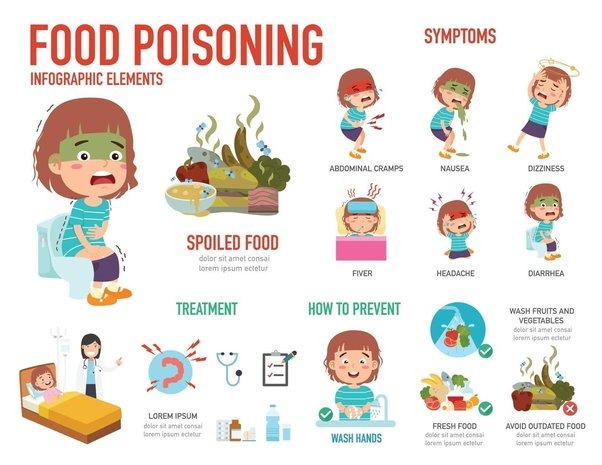Surviving the Unexpected: A Guide on How to Treat Food Poisoning

Welcome to our guide on navigating the stormy waters of food poisoning. Whether it's a dodgy street taco or a questionable sushi roll, food poisoning can hit anyone, anywhere, at any time. But fear not! With the right knowledge and a dash of TLC, you can emerge victorious from this culinary battle. In this article, we'll explore practical steps to treat food poisoning and restore your body to its former glory.
Section 1: Identifying the Culprit
The first step in treating food poisoning is identifying the culprit. Symptoms may include nausea, vomiting, diarrhea, abdominal pain, fever, and fatigue. Reflect on recent meals and pinpoint any suspect dishes or ingredients. Remember, the sooner you identify the source, the sooner you can take action.
Section 2: Hydration, Hydration, Hydration
One of the most critical aspects of treating food poisoning is staying hydrated. Loss of fluids through vomiting and diarrhea can lead to dehydration, which exacerbates symptoms and prolongs recovery. Sip on clear fluids like water, herbal teas, or electrolyte solutions to replenish lost fluids and electrolytes. Avoid caffeinated or alcoholic beverages, as they can worsen dehydration.
Section 3: Rest and Recover
Listen to your body and prioritize rest. Food poisoning can leave you feeling drained and fatigued, so give yourself permission to take it easy. Cancel your plans, snuggle up with a cozy blanket, and indulge in some guilt-free Netflix binge-watching. Your body needs time to heal, so don't rush the recovery process.
Section 4: BRAT Diet to the Rescue
When your stomach is feeling sensitive, the BRAT diet can come to the rescue. BRAT stands for bananas, rice, applesauce, and toast—bland, easily digestible foods that can help soothe your stomach and firm up loose stools. Gradually reintroduce other foods as your symptoms improve, but steer clear of spicy, fatty, or heavy dishes for now.
Section 5: Seek Medical Attention if Needed
In most cases, food poisoning resolves on its own within a few days with home care. However, certain symptoms may indicate a more serious underlying condition, such as bloody stools, severe dehydration, persistent vomiting, or high fever. If you experience any concerning symptoms or if your symptoms worsen, don't hesitate to seek medical attention.
Conclusion:
Food poisoning is an unpleasant experience, but with the right approach, you can weather the storm and emerge stronger on the other side. Remember to stay hydrated, rest, and nourish your body with gentle foods. And above all, listen to your body and seek medical help if needed. Here's to a speedy recovery and many delicious meals ahead!



